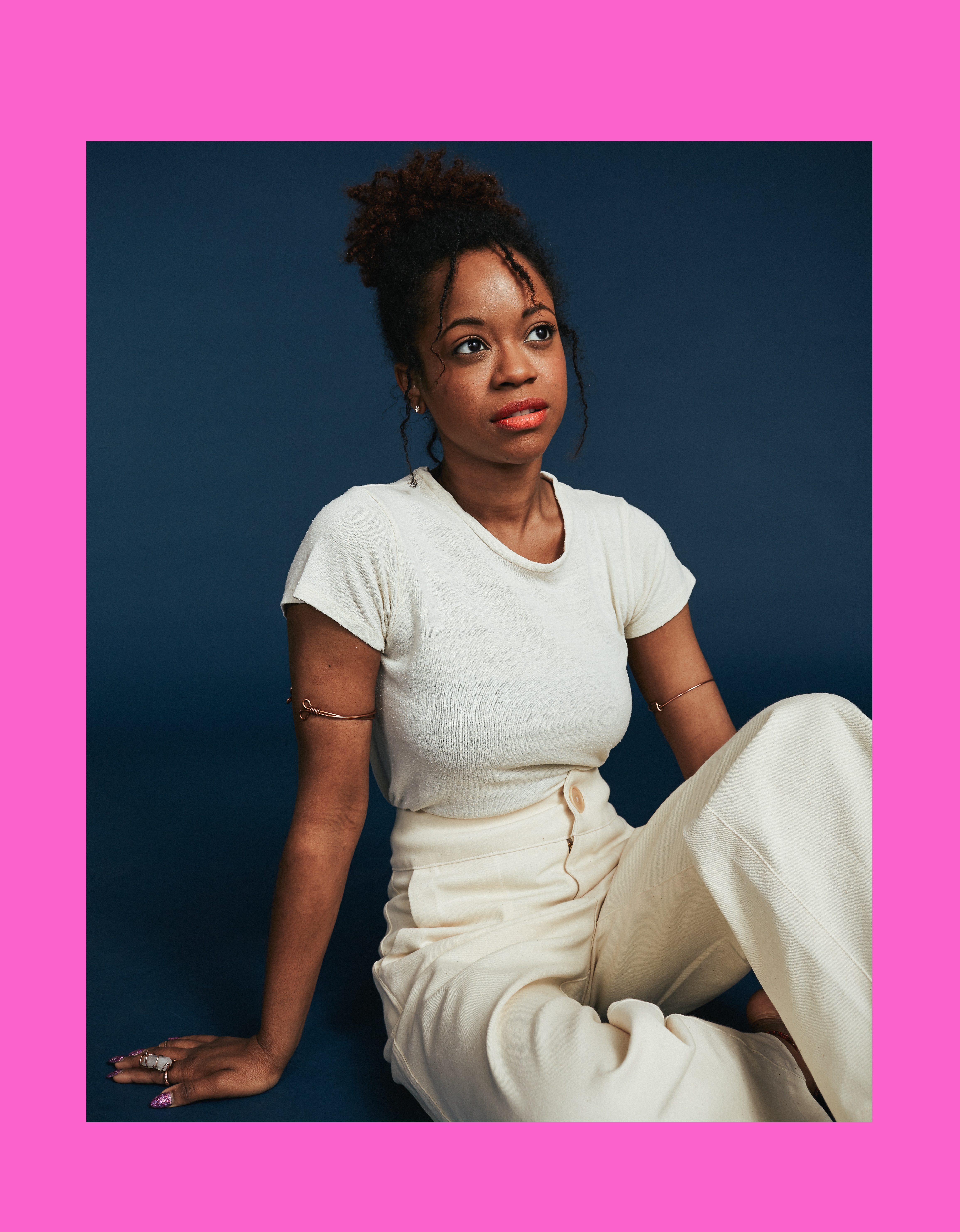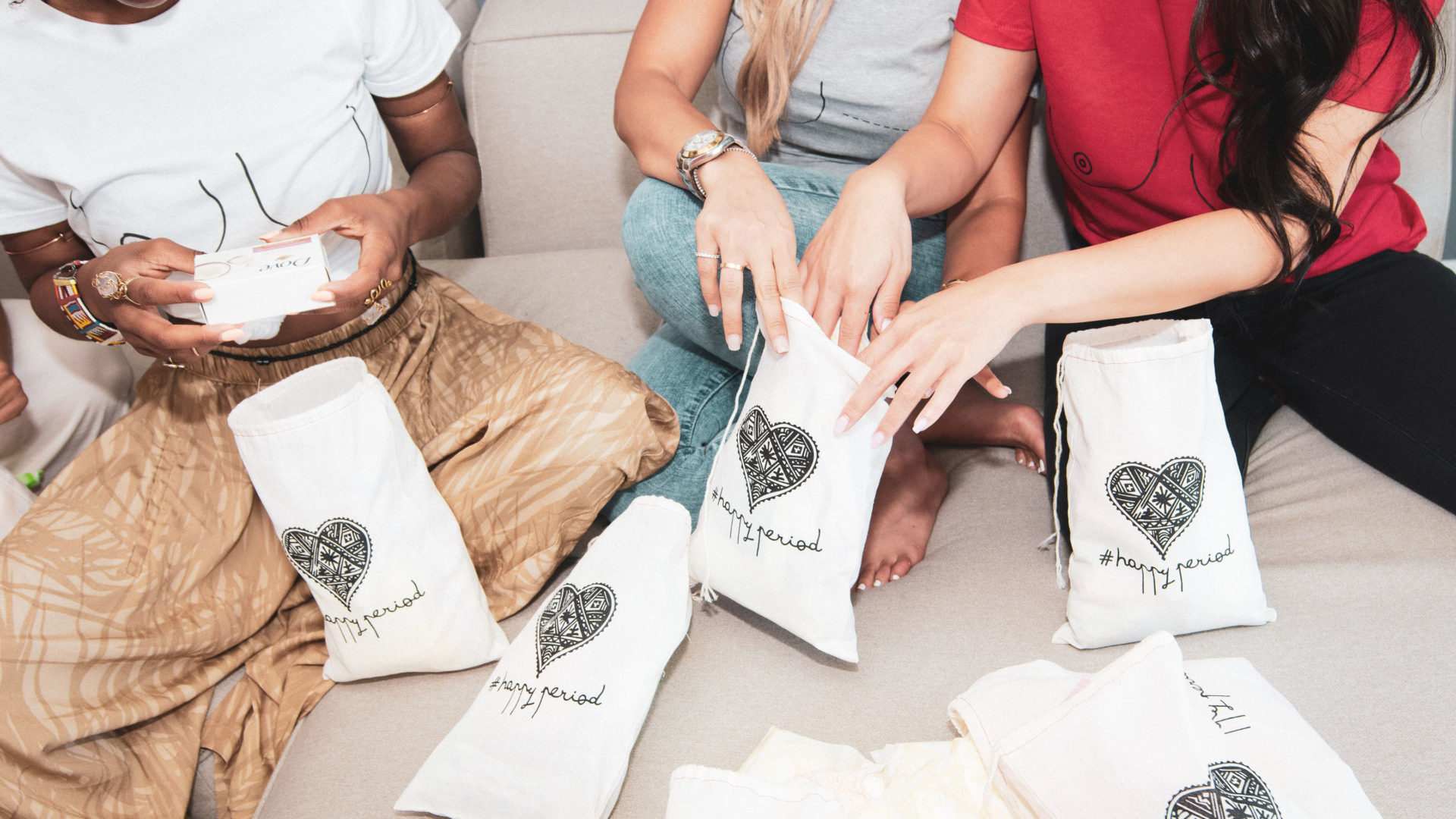
Chelsea VonChaz is passionate about periods, especially as they pertain to Black people and people of color. She’s the founder of #HappyPeriod, a Los Angeles-based non-profit that provides menstrual education and equips people, especially the homeless community, with period products. Since she’s started this initiative, she’s noticed a few problems within the period based efforts, as well as problematic sexual education courses. The main issue she fights against, though, is menstrual inequity, and how Black people are often excluded or disrespected.
Periods have historically been seen as impure, mostly because of antiquated religious and misogynistic ideas. This has been especially true in the Black community, according to Chelsea. “We’re kinda still old school, even when it comes to us hiding our [unopened] tampons under our sleeve, you know, hiding our periods from our man…”, she said. But Chelsea also pointed out that the recent attention to wellness has started shifting the way we think of our periods. “[W]e’re coming around”, the organizer said.
Though individual circumstances vary (age when menstruation began vs. when menopause ends), a life cycle’s worth of period products costs about $40,000, according to Chelsea. Period products are also heavily taxed, even though buying them is not optional. Yet, recreational activities, like getting tattoos, remain tax free.
Homeless communities have it especially hard. According to #HappyPeriod’s site, Chelsea discovered that it isn’t mandatory that homeless shelters [in Los Angeles] include period products in their budget. It’s even more difficult for homeless individuals who are living on the street, or those living in poverty. When products can’t be afforded, many have to use napkins and paper towels to stop blood from seeping through their clothes. This can affect their confidence, and stop them from going for opportunities that could lead to employment or housing.
Chelsea was inspired to begin #HappyPeriod in early 2015, when she noticed a young, visibly-homeless woman had bled through her pants. This prompted the former stylist to began distributing period product kits (which included pads, tampons, liners, wipes, underwear, and soap) on Skid Row in Los Angeles. She and her team were met with gratitude, and forged relationships within the community they served. But as a period product organizer and activist, she began to notice the ways that Black people were being failed by White organizers.

Within the community of period poverty efforts, Black women are regularly erased from stories or used to fill diversity quotas, Chelsea shared. She also noted how White organizers would push their beliefs regarding period products onto young Black girls. As she spoke to the girls, she realized that her counterparts’ efforts were largely unproductive. “The programming, the booklets, the videos [and] the curriculum [didn’t] have any Black or brown faces in [them],”, she said. Chelsea is rather critical of the implementation of the “buy one menstrual cup, and we’ll donate one to a girl in need” program because of those girls’ personal feelings. While she agrees that it’s a positive mission, it doesn’t suit everyone’s narrative.
“It’s still…’let’s tell them what to do with their bodies,'”, she said. “They’re asking girls to switch from cloth pads, which is something that’s normal..but they’re telling them ‘[menstrual cups are better for your body]’, not taking into consideration that these girls have a different economic situation…or their religion, or their culture.”
With #HappyPeriod, Chelsea VonChaz is considering the true feelings of those being served, without thinking of herself as a savior. The extraction of superiority and savior complexes are needed in this line of work, as well as the consistent dedication to being of service. “Every day is [National Period Day] for me,” Chelsea said with a laugh.
Keep up with Chelsea VonChaz and #HappyPeriod on Instagram.
Image credit: Source